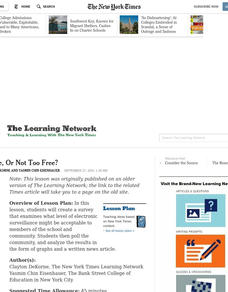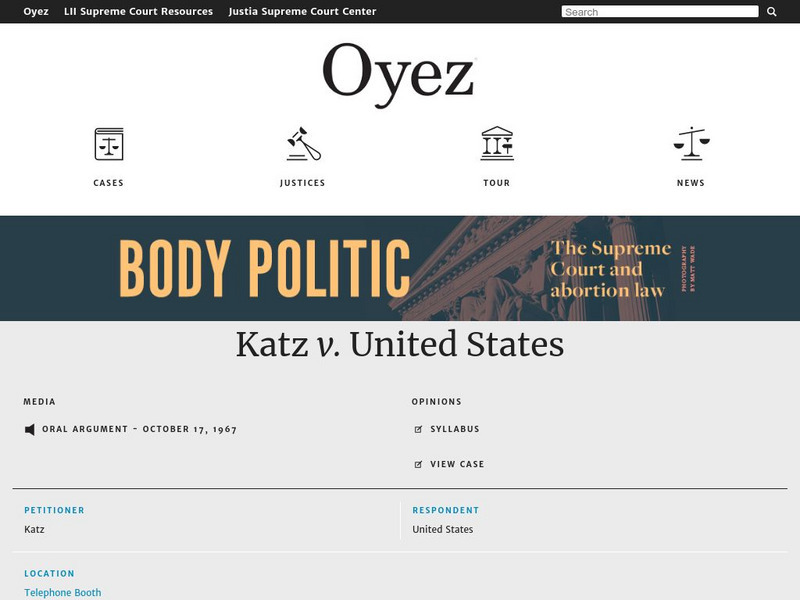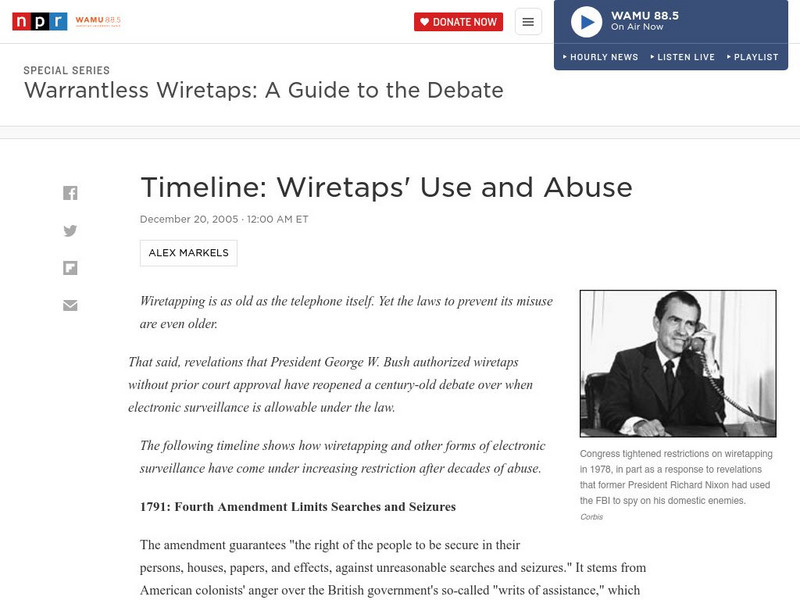Curated OER
Too Free, Or Not Too Free?
Students create a survey that examines what level of electronic surveillance might be acceptable to members of the school and community. They poll the community, and analyze the results in the form of graphs and a written news article.
Curated OER
Electronic Surveillance: Unlawful Invasion of Privacy or Justifiable Law Enforcement
Learners state values and analyze them and the values of other students as it relates to the issue of individual privacy. They develop constitutional provisions which address issues relating to privacy with particular reference to item...
PBS
Online Newshour:domestic Security
Features an ongoing collection of articles and resources providing current and past news on domestic security and the war on terrorism. Gives facts on our domestic surveillance programs, the National Security Agency, the USA Patriot Act...
Illinois Institute of Technology
The Oyez Project: Katz v. United States
Katz v. United States altered the meaning of the 4th Amendment, the right to search and seizure, appealing his case in 1967 regarding the investigator's use of electronic surveillance. Oyez features the facts and recordings from the...
NPR: National Public Radio
Npr: Timeline: Wiretaps' Use and Abuse
As the debate over domestic surveillance heats up in the Bush administration between the President and Congress, NPR provides a timeline of the history behind electronic surveillance laws.
Other
Ncsl: Electronic Surveillance Laws
This resource lists state and federal laws on electronic surveillance. A hyperlink is also provided to further information pertaining to response to terrorist attacks.
NPR: National Public Radio
Npr: A Guide to the Nsa Eavesdropping Debate
From National Public Radio, the controversy surrounding President Bush's domestic wiretapping program is looked at. Learn what it's all about. Ongoing coverage of the debate is provided.
University of Minnesota
Univerity of Minnesota: Global Rem: Border Control & Technology
This resource uses articles, images, and videos that describe the use of sophisticated technologies to control migration at the border between the United States and Mexico. The goal is to encourage students to understand how technology...
CommonLit
Common Lit: f.b.i. Watched Activist Groups, New Files Show by Eric Lichtblau
Following the terrorist attack on September 11, 2001, President George W. Bush signed the PATRIOT Act, expanding the power of F.B.I. and its ability to surveil citizens. In this 2005 New York Times article, Eric Lichtblau discusses...
iCivics
I Civics: Clapper v. Amnesty International (2013)
This mini-lesson covers the basics of the Supreme Court's decision that determined the government's ability to conduct electronic surveillance of its citizens. Young scholars learn about the First Amendment right to free speech, the...









